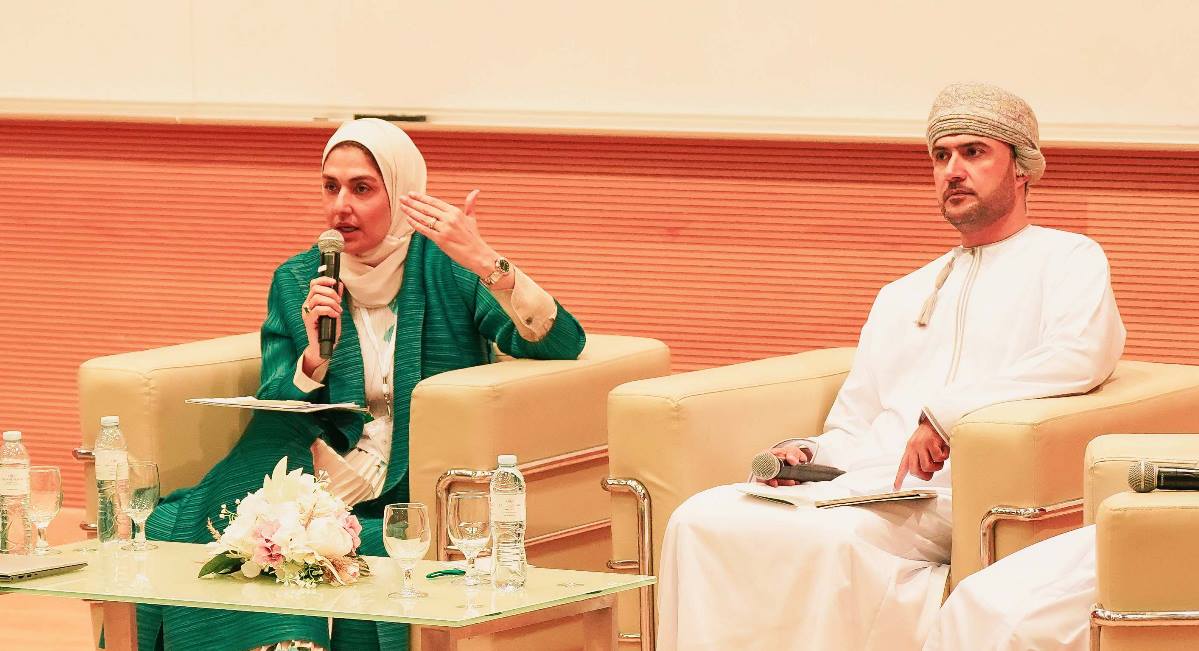SCW Secretary General participates in Gulf Forum for Family Policies

Hala Al Ansari, Secretary General of the Supreme Council for Women (SWC), has emphasised the importance of developing social policies and linking them to citizenship and identity, as well as assessing their impact on societal cohesion and stability.
She stressed the importance of developing and giving top priority to social while continuing to contain the repercussions of the health pandemic with their economic and social effects, as well as emerging challenges and phenomena that must be dealt with at the level of the threat they pose to the collective identity, the social fabric, and the intellectual and ideological system of the peoples of the region.
The secretary-general made the statements as she participated as a lead speaker in the symposium entitled "Social Policies to Consolidate the Practice of Responsible Citizenship in the GCC Countries" which was organised by the Executive Office of the Labour and Social Affairs Councils of the General Secretariat of the Gulf Cooperation Council (GCC) in Oman.
Al Ansari indicated that social policies cement social cohesion in the short run, and act as an engine for national recovery programmes in the long run, by focusing on the elements of social protection and the fairness of providing opportunities, and achieving the required balance between the requirements of economic development and the necessities of policies.
Al Ansari showcased several practical practices pursued by Bahrain in terms of consolidating citizenship and responsibility, including the National Plan to Promote the Spirit of Belonging to the Nation and Reinforce the Values of Nationalism (Bahrainouna) which has been developed and implemented since 2019 through a variety of initiatives and programmes in partnership with state and community institutions.
She affirmed that all these programmes and initiatives stem from the national plans and policies of educational and youth institutions with specialisation and relationship to social development and the advancement of Bahraini women, and they are followed up through specific measurement indicators to show their impact.
The National Plan for the Advancement of Women prioritised family stability and strengthened women's role in preserving values and national identity, Al Ansari said, noting that it is a tributary of Bahrain's comprehensive social policy.
The "Women’s Support Centre" at the SCW was established to follow up on all Bahraini women’s needs and solve the problems they face, whether related to social protection, housing services, family affairs, or even issues related to the work environment, she added.
Al Ansari highlighted that Bahrain is promoting projects to empower productive families and has allocated two awards carrying the name of Her Royal Highness Princess Sabeeka bint Ibrahim Al Khalifa, Wife of His Majesty the King and President of the Supreme Council for Women. These initiatives aim to link national products to local and international markets, enabling families to expand their business and linking national products to local and international markets.
Responsible citizenship is formed because of the efforts undertaken by the family and the state in its various institutions, starting with the family, educational institutions, media and religious platforms, and civil society institutions, she said.
Al Ansari recommended continued cooperation and exchange of experience among GCC countries to strengthen national identity and responsible citizenship through the implementation of social policies in the Gulf. This will increase the impact of these policies on the region's progress, she added.
She emphasised the importance of consolidating citizenship and social cohesion values, modernising social policies in GCC countries, linking them to security indicators, and highlighting the family system's role in socialisation as well as emphasising the role of responsible media, national educational institutions, and religious discourse in respecting national values.
Al Ansari recommended strengthening partnerships with civil society and the private sector for social policies, developing a GCC guiding framework, strengthening national belonging, establishing a common platform, and intensifying qualitative studies.

